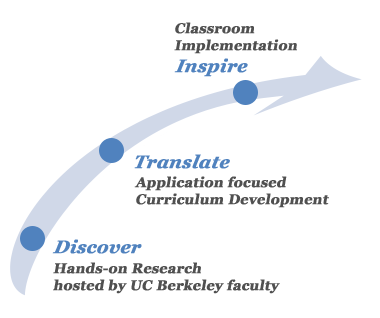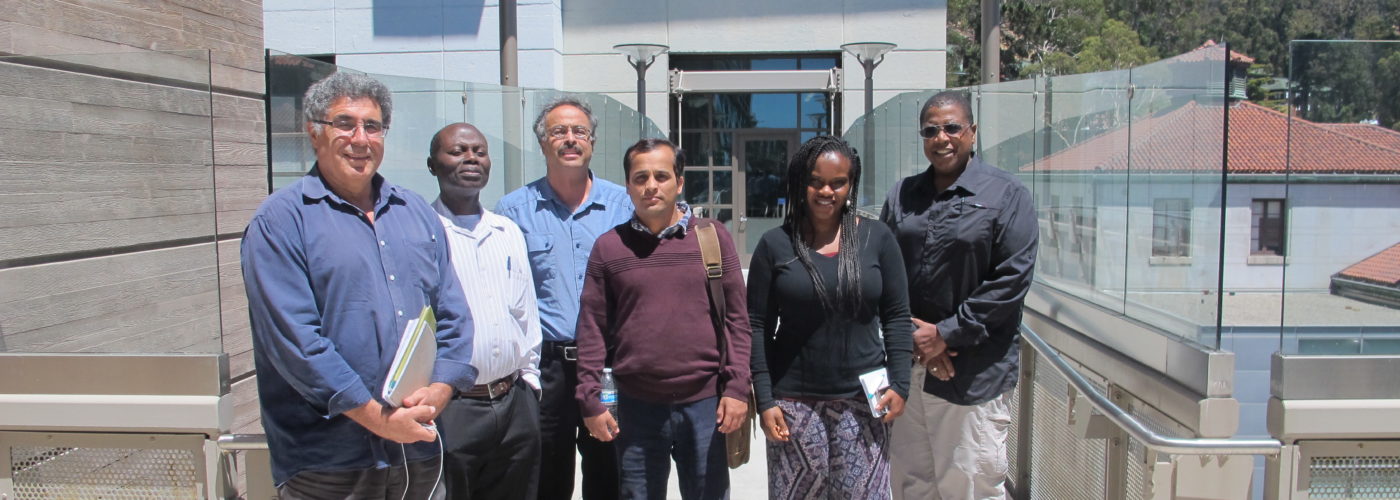Professional Development Opportunity for Community College Faculty
The RET Summer Research Program was a paid nine-week experience that integrates individual hands-on research with curriculum development to enable new research concepts to be introduced in community college classrooms in the context-based approach. Following the faculty’s summer experience, participants implemented their course module at their community college. This program was jointly funded by an NSF Site award and the Center for E3S.

Promoting classroom teaching of leading-edge science and engineering concepts in the context of real life applications as a means to excite and retain community college STEM students. For science, engineering & mathematics faculty and instructors at California Community Colleges.
Given the Center’s focus on creating a pipeline of community college students who pursue a baccalaureate degree in science and engineering, it is imperative for the Center to engage community college faculty. These teachers can further integrate E3S science and research findings into the community college curriculum and increase community college students’ awareness and knowledge of low-energy electronic devices.
Closely aligned with project-based learning and inquiry-based science education, the context-based approach is a pedagogical method that brings scientific concepts alive in the community college classroom by tying the teaching with applications that resonates with students. The context-based approach has been shown through assessments to enhance the students’ interest in STEM and has been applied successfully in college teaching, particularly to the teaching of chemistry. Empirical evidence has also shown that context-based education helps students see and appreciate more clearly the links between science and everyday lives. The context selected for this RET program is technology applications that offer societal benefits and have employment opportunity potential. The premise is that using such context will increase community college student engagement in STEM studies, thereby contributing to student persistence and eventually, improved retention rates of students in STEM.
